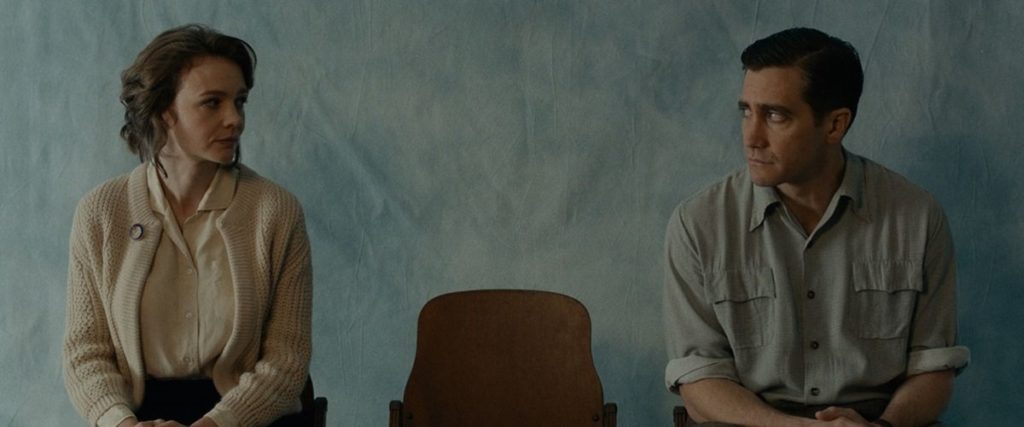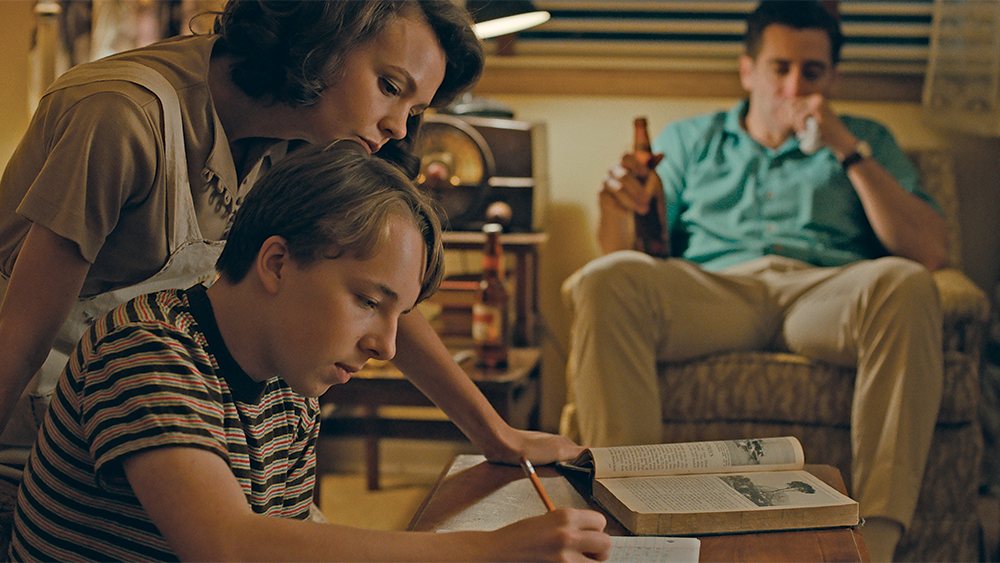Wildlife – Film Review

Aaron Farrell
Wildlife is an earnest study of parenthood, childhood and how the coming-of-age and expectations of others never cease to exist. Following Joe (Ed Oxenbould on career-making form), a sweet, mild-mannered fourteen-year-old school, the audience witness the deconstruction of his parents marriage as wildfires close to the Canadian border forewarn a layered sense of inevitability within the late 50’s of Montana.
Paul Dano is an actor with incredible range and thoughtfulness. When I read he’d be directing a film starring Carey Mulligan and Jake Gyllenhaal, my excitement bloated for a picture that would undoubtedly be an acting showcase. This is that. Mulligan as Jeanette, a mother struggling to abide by her husband’s erratic nature – its alluded to that the family have moved across country several times for work – and her own responsibility as a parent. Her performance is a tour-de-force. It originates with a quiet contempt through the graceful smiling and nodding and bursts into an unhinged showcase of self-loathing through the conceits of past achievements and a future she wants to write for herself. I’d imagine Dano and Mulligan, working from the source material of Richard Ford’s novel, fine tuning the nuances of Jeanette to allude to so much more than what is being said or shown. There are signs of mental health issues though the social relevance, like much of the commentary from the characters, TV and radio, is quiet and understated.
Gyllenhaal is equally as terrific. Jerry is the bread-winning Father and Husband who’s pride and self-worth have upended his family for that fabled new-beginning that’ll fix everything. After being fired as a golf coach, Jerry declines in decency and is clearly distracted from his family in longing for meaning. The screenplay which is adapted by Dano and actor/screenwriter Zoe Kazan is deftly composed in how difficult life can be for working-class parents to juggle parenthood and jobs with their own worth; or the fact that they have to abandoned notions of self-worth for parenthood and working life. Jerry’s laboured over decision to go and fight the insurmountable fires decimating the forests to the North is a catalyst for Jeanette’s decline into dancing with unfaithfulness and Joe’s rising to the task of trying to make sense of adult reasoning – or the lack of.
As this is a period piece, suburbia era clothing and cars are exhibited but the pastel colours of the nuclear family are swapped to match the drab grey infinite landscape of Montana’s forest and mountain backdrops. Production Designer Akin McKenzie uses this subversive authenticity to exercise the bleakness of time and place. With the picture being told from Joe’s perspective, his scenes of hanging-out with prospective love interest in Ruth-Ann (Zoe Margaret Coletti) do feature sunshine, colour and possibility. But those possibilities are pushed aside by Joe himself in getting a job as a photographer’s assistant to help with the rent and, amusing his Mother as the child she continually reminds him he is.

Oxenbould, though surrounded by two acting titans in Mulligan and Gyllenhaal, proves his worth with every nervous tic or breaking of voice. A teen who’s coming of age is forced by his warring parents and forsaken hope of love. Ruth-Ann continues to be kind to Joe, helping him on a test he didn’t have time to revise for which is a display of the impact of every small, sombre scene within Wildlife. Every passage of the narrative furthers the metaphor that this film is a bleeding heart on a shirtsleeve, and that each emotional pump is felt like a punch.
Cinematographer Diego Garcia gives time for the scenery and characters to laboriously exhale. In the aforementioned scenes of burgeoning young love, the camera picks up its movement with Joe’s own excitement. But for much of the film, the camera is still, obstinate in medium shots of the characters boiling in their own broth. We do see directly through Joe’s eyes on select times however, with confidently slow pans that show nothing but longing. On a car trip into the mountains with Joe and his Mum, the camera – Joe’s eyes – pans so slowly in trying to pick out his Father amongst a group of firefighters that you are left as hurt as Joe when Jerry is no where to be seen. In his absence, Jeanette befriends Bill Camp’s Warren Miller, an older upper-class divorcee, upon whom she projects all her desires for Jerry. Joe holds childish hope to the last scene of holding onto his parents as they were. Yet also exudes a maturity in the face of reality that his parents could learn a thing or two from.
Wildlife is a wonderfully self-effacing film. Presenting flawed characters as tools to dissect the American Dream of small-town existence. Dano assuredly asserts himself as a director as talented as he is an actor. This is a film that is hard to watch in its scenes of emotional turmoil scarring all involved and impossible to look away from for fear of missing some flicker of redemption in a teary eye. It has a great amount to say and does so in a manner so efficiently that makes you want to relieve the past again, like parents pleading for value to an indifferent version of their psyche. Wildlife is one of the best films of 2018 and assuredly to become one of the most under seen with its limited cinema release. Seek it out.
Support our Nation today
For the price of a cup of coffee a month you can help us create an independent, not-for-profit, national news service for the people of Wales, by the people of Wales.





